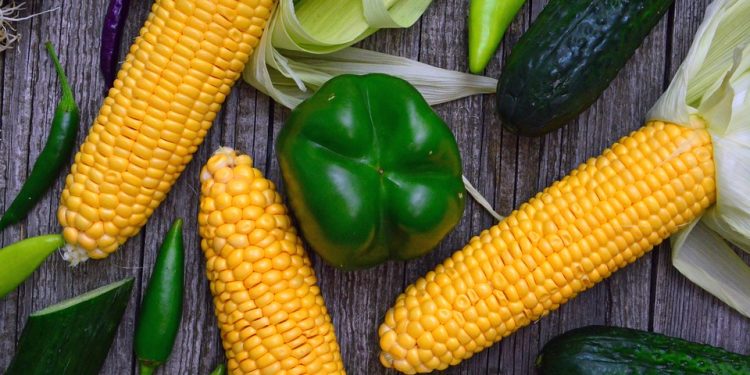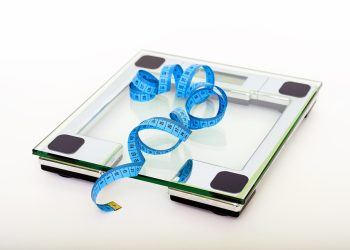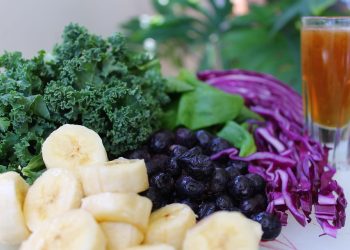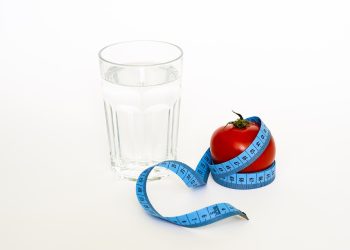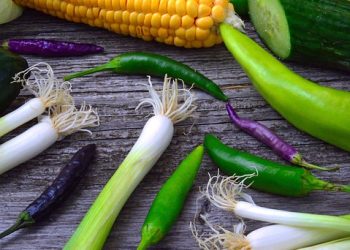The Sustainable Weight Loss Journey: Ditch the Diet, Embrace the Lifestyle
Losing weight is a goal for many, but the journey often feels like an uphill battle paved with restrictive diets and unsustainable practices. The key to long-term success isn’t a quick fix, but rather a sustainable lifestyle change that integrates seamlessly into your real life. We’re talking about real results, achieved through realistic strategies you can maintain for years to come.
Why Diets Often Fail: The Yo-Yo Effect
Crash diets, fad diets, and severely restrictive plans often lead to rapid weight loss, but this is usually followed by equally rapid weight regain. This “yo-yo” effect can be detrimental to your metabolism, making it harder to lose weight in the future. Here’s why:
- Muscle Loss: Extreme calorie restriction forces your body to burn muscle for energy, lowering your metabolism.
- Metabolic Adaptation: Your body adapts to the lower calorie intake, requiring even fewer calories to maintain weight.
- Hormonal Imbalances: Diets can disrupt hunger and satiety hormones, leading to increased cravings and overeating.
- Psychological Impact: The restrictive nature of diets can lead to feelings of deprivation, guilt, and ultimately, failure.
The Sustainable Approach: Building a Foundation for Long-Term Success
Sustainable weight loss focuses on creating healthy habits that you can maintain over the long term. This approach emphasizes gradual changes, balanced nutrition, and enjoyable physical activity. It’s not about deprivation; it’s about making informed choices that nourish your body and support your overall well-being.
Nutrition: Fueling Your Body the Right Way
Nutrition plays a crucial role in weight loss and overall health. Focus on building a balanced diet that includes a variety of nutrient-rich foods.
Prioritize Whole, Unprocessed Foods
Whole foods are those that are closest to their natural state, such as fruits, vegetables, lean proteins, and whole grains. These foods are packed with nutrients and fiber, which help you feel full and satisfied. Limit processed foods, which are often high in calories, unhealthy fats, and added sugars.
Examples of Whole Foods:
- Fruits: Apples, bananas, berries, oranges
- Vegetables: Broccoli, spinach, carrots, bell peppers
- Lean Proteins: Chicken breast, fish, beans, lentils
- Whole Grains: Brown rice, quinoa, oats, whole wheat bread
The Importance of Macronutrients: Protein, Carbs, and Fats
Understanding macronutrients is key to building a balanced diet. Each macronutrient plays a vital role in your body’s functions.
- Protein: Essential for building and repairing tissues, protein helps you feel full and satisfied. Aim for around 0.8 grams of protein per kilogram of body weight, adjusting based on activity level.
- Carbohydrates: Your body’s primary source of energy. Choose complex carbohydrates like whole grains, fruits, and vegetables over simple carbohydrates like sugary drinks and processed snacks.
- Fats: Essential for hormone production, cell function, and nutrient absorption. Choose healthy fats like avocados, nuts, seeds, and olive oil. Limit saturated and trans fats.
Mindful Eating: Paying Attention to Your Body’s Signals
Mindful eating involves paying attention to your hunger and fullness cues and eating without distractions. This practice can help you develop a healthier relationship with food and prevent overeating.
Tips for Mindful Eating:
- Eat Slowly: Savor each bite and pay attention to the flavors and textures of your food.
- Eliminate Distractions: Turn off the TV, put away your phone, and focus on your meal.
- Listen to Your Body: Eat when you’re hungry and stop when you’re full.
- Avoid Emotional Eating: Recognize when you’re eating to cope with emotions and find healthier ways to manage stress.
Hydration: The Unsung Hero of Weight Loss
Drinking enough water is essential for overall health and can also aid in weight loss. Water helps you feel full, boosts your metabolism, and aids in digestion.
- Aim for 8 glasses of water per day: Adjust based on your activity level and climate.
- Drink water before meals: This can help you feel fuller and eat less.
- Carry a water bottle with you: This will remind you to drink throughout the day.
Exercise: Moving Your Body for a Healthier You
Exercise is an integral part of a sustainable weight loss plan. It helps you burn calories, build muscle, and improve your overall health.
Finding Activities You Enjoy: The Key to Consistency
The most effective exercise is the one you enjoy doing. Experiment with different activities until you find something you look forward to. This could be anything from dancing and hiking to swimming and cycling.
Examples of Enjoyable Activities:
- Dancing: A fun and energetic way to burn calories.
- Hiking: A great way to enjoy the outdoors and get some exercise.
- Swimming: A low-impact exercise that’s easy on the joints.
- Cycling: A great way to explore your surroundings and get some cardio.
The Benefits of Cardio and Strength Training
A well-rounded exercise program should include both cardio and strength training.
- Cardio: Helps you burn calories, improve cardiovascular health, and boost your mood. Aim for at least 150 minutes of moderate-intensity cardio per week. Examples include brisk walking, jogging, and cycling.
- Strength Training: Helps you build muscle, which boosts your metabolism and improves your strength and endurance. Aim for at least two strength training sessions per week, targeting all major muscle groups. Examples include lifting weights, using resistance bands, and doing bodyweight exercises.
Making Exercise a Habit: Tips for Staying Motivated
Consistency is key when it comes to exercise. Here are some tips to help you make exercise a habit:
- Schedule Your Workouts: Treat your workouts like any other important appointment.
- Find a Workout Buddy: Working out with a friend can help you stay motivated.
- Set Realistic Goals: Start small and gradually increase the intensity and duration of your workouts.
- Reward Yourself: Celebrate your accomplishments with non-food rewards, such as a new workout outfit or a relaxing massage.
Lifestyle Changes: Small Steps, Big Impact
Sustainable weight loss isn’t just about diet and exercise; it’s also about making small lifestyle changes that support your overall health and well-being.
Prioritize Sleep: The Foundation of Health
Getting enough sleep is essential for weight loss and overall health. When you’re sleep-deprived, your body produces more of the hunger hormone ghrelin and less of the satiety hormone leptin, which can lead to increased cravings and overeating. Aim for 7-8 hours of sleep per night.
Manage Stress: Finding Healthy Coping Mechanisms
Stress can lead to emotional eating and weight gain. Find healthy ways to manage stress, such as meditation, yoga, or spending time in nature.
Building a Support System: Sharing the Journey
Having a support system can make a big difference in your weight loss journey. Surround yourself with friends, family, or a support group who can encourage and motivate you.
Tracking Progress: Monitoring Your Success
Tracking your progress can help you stay motivated and make adjustments to your plan as needed. You can track your weight, measurements, food intake, and exercise. Use a journal, a fitness app, or a spreadsheet to monitor your progress.
Overcoming Challenges: Navigating Setbacks
Everyone faces challenges and setbacks along the way. The key is to learn from these experiences and get back on track.
Don’t Strive for Perfection: Embrace Imperfection
It’s okay to have slip-ups. Don’t let a single mistake derail your entire plan. Just get back on track with your next meal or workout.
Identify Your Triggers: Understanding Your Weaknesses
Identify the situations or emotions that trigger unhealthy eating habits. Once you know your triggers, you can develop strategies to cope with them in a healthier way.
Seek Professional Help: When to Ask for Support
If you’re struggling to lose weight on your own, consider seeking professional help from a registered dietitian or a certified personal trainer. They can provide personalized guidance and support to help you achieve your goals.
Conclusion: A Sustainable Future
Sustainable weight loss is a journey, not a destination. It’s about making gradual, lasting changes to your lifestyle that support your long-term health and well-being. By focusing on balanced nutrition, enjoyable exercise, and healthy lifestyle habits, you can achieve real results that you can maintain for years to come. Remember, it’s not about perfection; it’s about progress. Embrace the journey, celebrate your successes, and learn from your challenges. Your sustainable weight loss journey awaits!
FAQs: Your Questions Answered
- Q: How quickly can I expect to see results with sustainable weight loss?
- A: Sustainable weight loss typically results in a gradual weight loss of 1-2 pounds per week. This pace is more sustainable and helps prevent the yo-yo effect.
- Q: What if I have a bad day and overeat?
- A: Don’t beat yourself up! One bad day won’t derail your progress. Just get back on track with your next meal or workout.
- Q: Is it okay to have cheat meals?
- A: Occasional treats can be part of a sustainable plan. Focus on enjoying them mindfully and in moderation. Consider the term “treat meal” rather than “cheat meal” to promote a healthier mindset.
- Q: What if I don’t have time to exercise?
- A: Even small amounts of exercise can make a difference. Try incorporating short bursts of activity into your day, such as taking the stairs, walking during your lunch break, or doing a quick workout at home. Aim for progress, not perfection. Ten minutes is better than zero!
- Q: How do I deal with cravings?
- A: Identify the source of your cravings (hunger, emotions, habits). Try healthier alternatives, drink water, or distract yourself with a different activity. Sometimes a craving is a sign that your body is missing a particular nutrient.
- Q: Do I need to count calories?
- A: Calorie counting can be helpful for some, but it’s not necessary for everyone. Focus on eating whole, unprocessed foods and paying attention to your hunger and fullness cues. If you choose to count calories, do it for a limited time to learn about portion sizes and calorie content of different foods.
- Q: What are some healthy snack options?
- A: Great snack options include fruits, vegetables with hummus, nuts, seeds, yogurt, or a hard-boiled egg. Look for snacks that are high in protein and fiber to keep you feeling full and satisfied.
- Q: How can I stay motivated on my weight loss journey?
- A: Set realistic goals, track your progress, find a workout buddy, reward yourself for your accomplishments, and remember your “why.” Focus on the positive changes you’re making in your life and celebrate your successes along the way.

